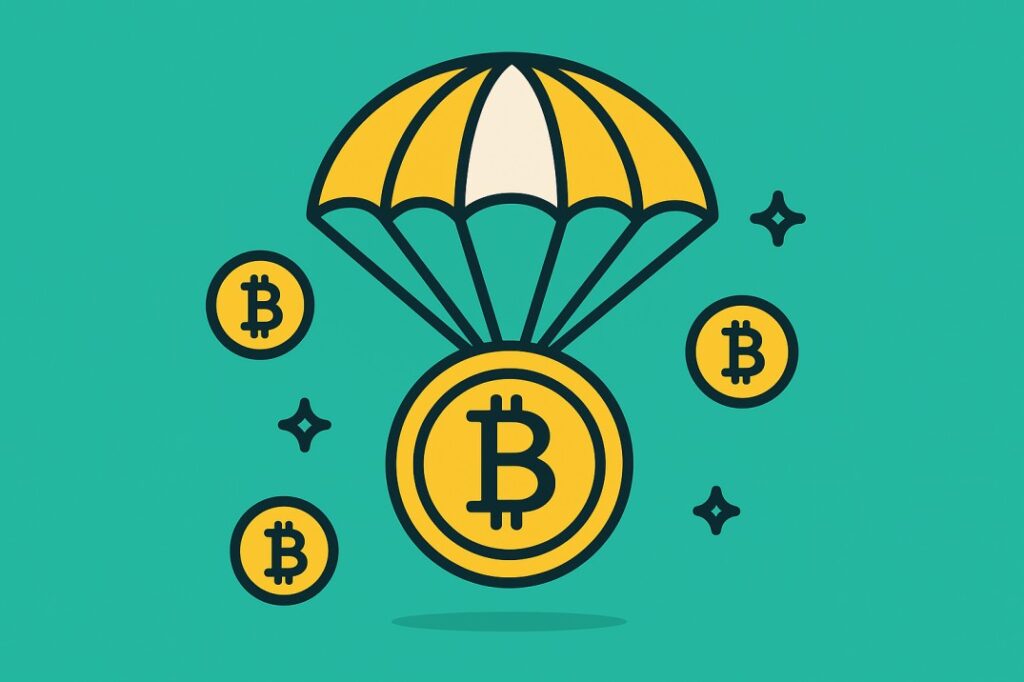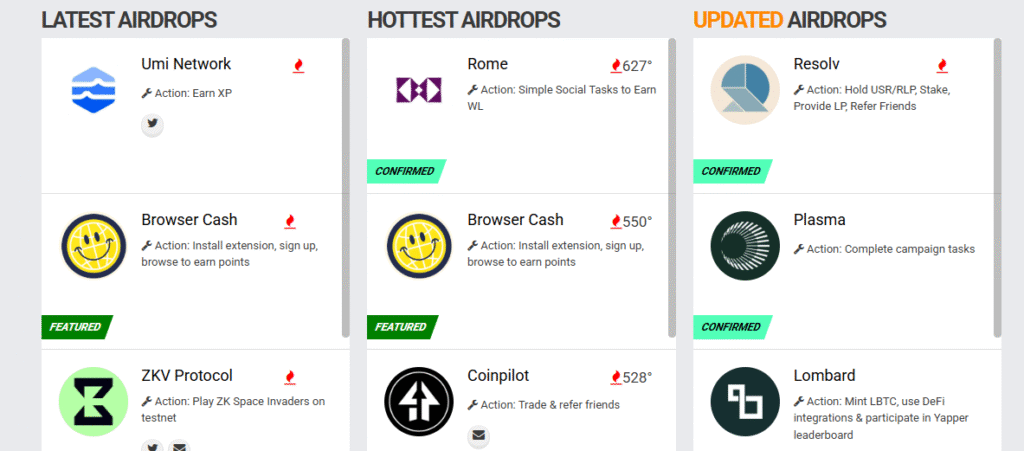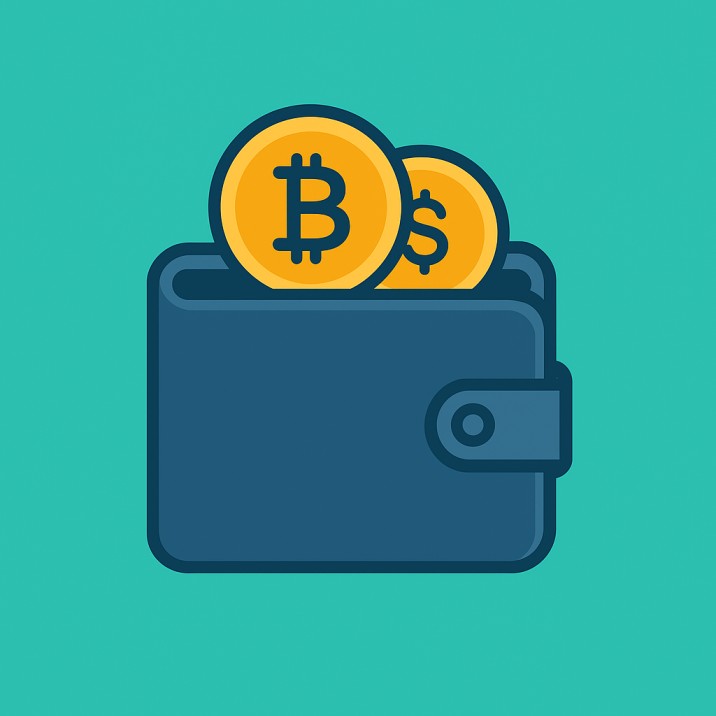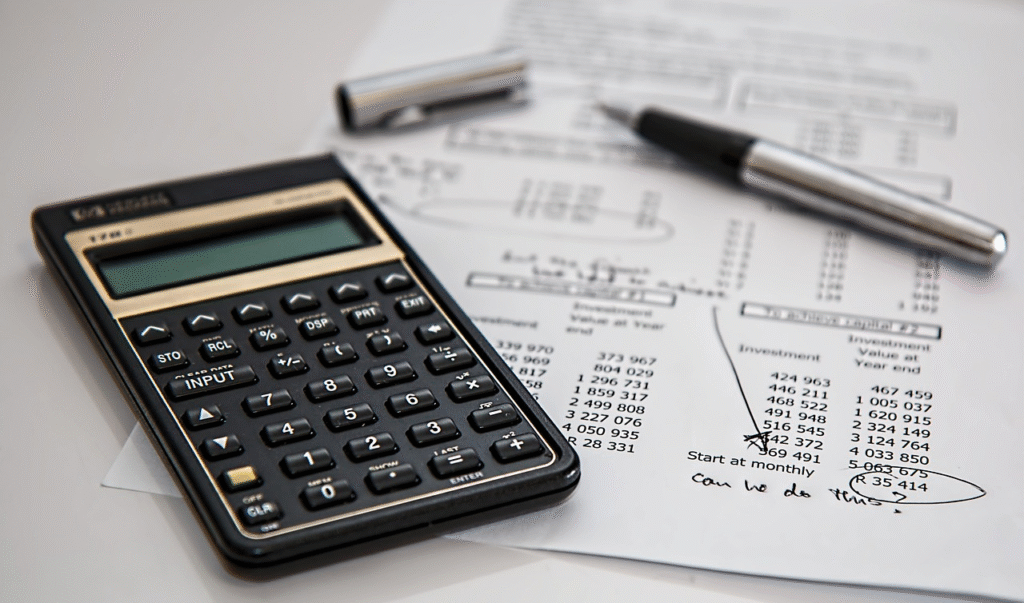Crypto airdrops sound like free money. And they’re available just for doing small tasks or holding a token. As such, it’s easy to see why many people overlook it since it resembles one of those click here to win schemes.
After my first successful claim, when tokens worth about a few thousand naira landed in my wallet without me spending a kobo, I realised airdrops are real. That’s if you know what you’re doing.
In Nigeria, every extra source of income matters, and airdrops can feel like finding free airtime on the ground. But as in the streets, not every free thing is safe to pick up. Some airdrops are legit. Some are bait to steal your coins.
Let me walk you through how I find and claim airdrops, and how I avoid falling into traps that have cost some Nigerians their entire wallet balance.
Step 1: Understand What an Airdrop Is

An airdrop is when a crypto project sends free tokens to wallets to promote their coin or reward early users. Sometimes you get them for holding a certain token. Sometimes for completing small tasks like joining a Telegram group or testing a new platform.
For example, I once got tokens from a project just for making a trade on their test network. A few months later, those tokens were listed on an exchange, and I sold part of them for naira through P2P.
The main point: airdrops are like free samples. Crypto and web3 projects give them to create awareness. But you still need to be careful about where those samples come from.
Step 2: Use Trusted Sources to Find Airdrops

When I started, I made the mistake of clicking random Twitter links. One almost drained my wallet because I connected it to a fake site.
Now, I use reliable sources:
- CoinMarketCap Airdrop page — shows verified ongoing airdrops
- Airdrop.io — lists current and upcoming airdrops
- Official project channels — Twitter, Discord, Telegram of the actual project
If a link comes from a friend, I still double-check on Google or search for the official website myself. Forwarded as received is common in Nigeria, so it’s dangerous to trust every link.
Step 3: Have a Separate Wallet for Airdrops

This is one of the smartest moves I made. I keep a wallet just for claiming airdrops. Why? If a scam site tricks me into approving a bad transaction, at least my main wallet remains untouched.
My airdrop wallet only holds small amounts for gas fees. For example, if I’m claiming an Ethereum airdrop, I keep a little ETH there just for transactions.
Step 4: Read the Requirements
Each airdrop has its own rules. Some want you to:
- Hold a certain coin in your wallet
- Complete social media tasks (follow, retweet, join group)
- Test a platform and give feedback
- Connect your wallet to their app and perform a simple trade
I always read the instructions carefully. One time I missed a step in a Solana airdrop because I didn’t join their Discord server, and I wasn’t eligible even though I did everything else.
Step 5: Beware of “Connect Wallet” Scams
Many airdrops will ask you to connect your wallet. That’s fine, as long as it’s the real site. But some fake sites trick you into signing a transaction that gives them permission to spend your tokens.
Here’s my safety routine:
- I check the URL for no extra letters, no weird domain extensions
- I search the project on Twitter and see if the link matches
- I look for the small lock icon on my browser to confirm it’s HTTPS
If the site asks me to enter my seed phrase or recovery words, I close it instantly. No legit airdrop will ever ask for that.
Step 6: Prepare for Gas Fees
Even “free” airdrops can cost a little to claim. On Ethereum, claiming might cost $5 to $20 in gas fees. On cheaper chains like Binance Smart Chain, Polygon, or Arbitrum, the cost is much lower.
I’ve learned to check if the token’s value is worth the gas fee before claiming. No point in spending ₦10,000 in gas just to claim ₦3,000 worth of tokens.
Step 7: Keep Track of What You Claimed

When I started claiming many airdrops, I lost track. Months later, I realised some tokens had become valuable, but I forgot which wallet they were in.
Now, I keep a simple Google Sheet:
- Name of project
- Wallet used
- Claim date
- Network (Ethereum, BSC, Solana, etc.)
- Token symbol
It’s a small habit that has saved me from missing opportunities.
Step 8: Watch Out for Post-Airdrop Scams
Some scams happen after you get the tokens. You might receive an email or DM saying “You need to send ETH to unlock your airdrop.” That’s fake.
Legit airdrops don’t ask for extra payment after sending tokens. If you missed the claim window, you missed it — no shortcut payments will get it back.
Step 9: Sell or Hold?
Once I get my tokens, I decide whether to:
- Sell immediately if the price is high and I don’t trust the project’s future
- Hold if I believe in the project and think it will grow
I learned this lesson from the Uniswap airdrop in 2020. Some Nigerians sold their UNI tokens for about $2 each. Those who held for a few months saw it rise above $40.
My Golden Rules for Safe Airdrops
- Use a separate wallet for claiming
- Never share your seed phrase
- Verify every link from official sources
- Avoid paying high gas for low-value tokens
- Keep records of what you claim
- Stay patient — some airdrops take months to pay out
Bottom Line
The day I claimed my first airdrop, I realised how much opportunity is out there for anyone willing to learn. Extra income can make a huge difference in Nigeria, so airdrops can be a real blessing. But only if you approach them with sharp eyes.
When you get it right, it feels like free money falling from the sky. However, you know you earned it by staying informed, cautious, and consistent.

